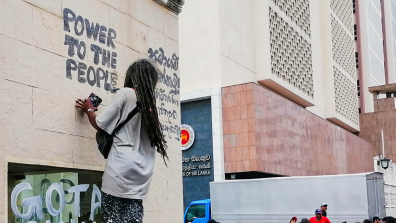Rana Plaza Never Again

On the day of the factory collapse in 2013, the workers in Rana Plaza in Dhaka had seen the cracks in the walls and rushed outside yet were ordered back to work. Hours later, at least 1134 workers, mostly young women were dead, buried in rubble and many more injured.
The Bangladesh Accord on Health and Safety was signed just weeks after the world’s worst industrial accident in the garment sector. It was a landmark agreement that brought together brands, retailers, trade unions and supplier factories in a comprehensive multi-year programme to address building and fire safety in garment factories in Bangladesh. It was the first time that global fashion brands acknowledged their direct responsibility for factory conditions in their supply chains – and 200 fashion brands signed up.
The Accord has largely been heralded as a success story; it is a binding agreement with real sanctions for brands, retailers, and factories who do not take action. Unions take up half of the seats in the Accord's governance structures and can hold brands accountable. However, ever since its five-year mandate expired in 2018 this legally binding agreement has been consistently under threat and in its current form is due to end on 31 May 2021.
Some brands are pushing for a watered-down version of the original agreement, but we know that voluntary agreements have not worked in the past precisely because they have not been transparent, enforceable, legally binding or ensuring the meaningful representation of workers and trade unions.
War on Want joins with trade unions in Bangladesh and the Clean Clothes Campaign to say Rana Plaza Never Again and Protect Progress and demand that a new international, legally binding agreement is signed, one that can be used as a template for safe working conditions in Bangladesh and other garment-producing countries and one that will ensure that the loss of garment workers’ lives is never again the price paid for profit.
Read our 2014 report Never Again for more information.



